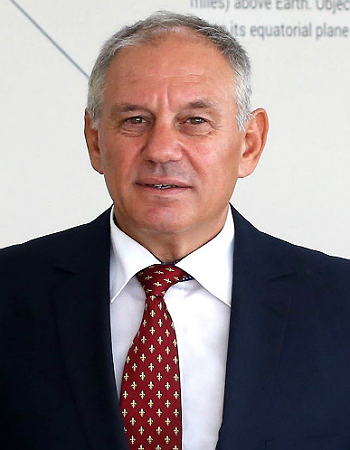Practically the business-education connection barely exists in this country. The issue has many layers and is an old one. The poor distribution of universities’ state funding leads to inadmissible amortization of their facilities, resulting in the lack of any motivation, as far as both students and lecturers are concerned. Hence the need of additional training for anyone, who has just stepped on the labor market.
The recently signed frame agreement for joint communication between the University for Telecommunications and Posts in Sofia and one of the major IT companies here gives hope. Thus the first in Bulgaria joint academic program, based on the principles of public-private partnership is being created. Its goal is to provide professional training of a high quality via direct work of the IT companies with the students. Rector of UTP Prof. Dimitar Radev gives us the details:
 “The Computer Administration of Software Applications major was established more than a year ago totally following the request of the business. The curriculum meets the criteria of both the university education and the IT HR users on the market. The enhanced teaching of English is typical for the specialty’s first year, followed by the same exam that the applicants for a multinational company hold. In the second year the students must have the skills required for the company’s teams. We now have students, invited to join the company and we will double their number next year, as other IT firms have joined.”
“The Computer Administration of Software Applications major was established more than a year ago totally following the request of the business. The curriculum meets the criteria of both the university education and the IT HR users on the market. The enhanced teaching of English is typical for the specialty’s first year, followed by the same exam that the applicants for a multinational company hold. In the second year the students must have the skills required for the company’s teams. We now have students, invited to join the company and we will double their number next year, as other IT firms have joined.”
The educational ministry is now forming a Software Education Council with the ambition to provide 20,000 experts – the current deficit within the sector.
“We are currently working on a joint project with other outsourcing IT companies”, Prof. Radev further explains. “We are preparing several other computer halls. Many of the companies offer internships and hourly employment to students. We try to find a business leader for each of the specialties. We need to adapt the professional training of our experts to the requirements of the IT companies that have entered Bulgaria’s market – and those are many. We have the basics in our education, now we need to stress on the professional training.”
What are the future goals of the university, set by Prof. Radev?
“We try to implement other contemporary forms of education, such as online training, so that we can invite lecturers from different European universities, without taking away any of their real time. We think this will add to the quality of training. We wish to fill in the capacity given by the state with expert students. The main thing that university education should be focused on is the motivation of young people. They will study when they see any results from their labor.”
English version: Zhivko Stanchev
Generation Z students (born 1995–2012) are widely using artificial intelligence in their learning, with teachers reporting that more than 85% complete homework and study with the help of digital assistants. Children tend to see AI as a partner..
This year, Christmas has "arrived" in Sofia as early as November with the aroma of mulled wine, cinnamon and festive magic. Radio Bulgaria recommends that you visit some Christmas spots in the Bulgarian capital city: For those most impatient to..
Three-time world champion and Olympic weightlifter Carlos Nasar will be holding a special event with the Bulgarian community in London on 23 November. According to the organisers, it will be an open conversation in which Nasar will discuss his journey..
Teodora Byalkova joined the Bulgarian Sunday school "Sts. Cyril and Methodius" in Athens in the 2022/23 school year. At that time, she..
From fear and doubts to joy and support – Bulgarians react differently to the upcoming introduction of the euro on January 1, 2026. For..
The village of Novo Selo is located on the road between Veliko Tarnovo and Sevlievo. Here archaeologists have found tools used by..

+359 2 9336 661
